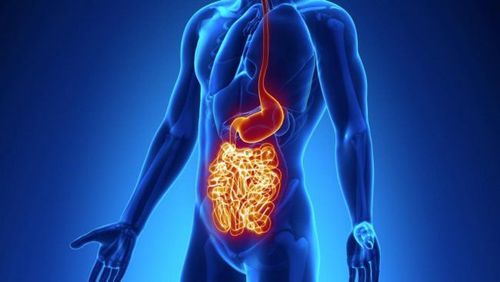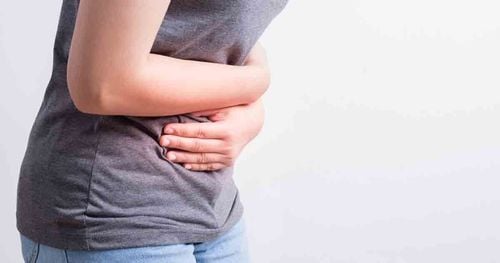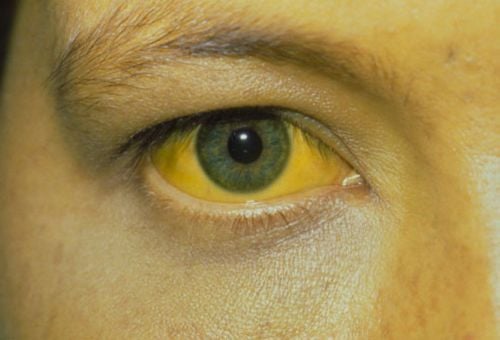This is an automatically translated article.
Crohn's disease is a chronic inflammatory bowel disease with symptoms such as abdominal pain, severe diarrhea, fatigue, weight loss, and malnutrition. Based on the effect on different areas of the gastrointestinal tract, Crohn's diseases can be classified into 5 types.
1. What is Crohn's disease?
Crohn's disease is caused by chronic inflammation and bowel erosion. It can occur in any part of the intestine including the stomach.
The exact cause of Crohn's disease is still unknown. Experts think it may be due to the body's immune system reacting to food or bacteria in the intestines or intestinal lining. This may be the cause of uncontrolled inflammation in people with Crohn's disease.
Treatment depends on the type of disease (where the disease is affected) and the severity of the disease. Each type of Crohn's disease is associated with its own symptoms and specific sites of the digestive tract:
2. How is Crohn's disease classified?
There are five different types of Crohn's disease, each affecting different sets of sites in the digestive tract.
Ileocolitis Ileitis Gastroduodenal Crohn's disease Jejunoileitis Crohn's colitis There are cases where the patient has many types Crohn's disease at the same time.
Here are five types of Crohn's disease:
2.1. Ileocolitis Most people with Crohn's disease have the ileocolitis type.
This form of Crohn's disease causes inflammation and irritation in the ileum (lower part of the small intestine) and colon.
People with ileitis may experience symptoms such as:
Diarrhea There is noticeable weight loss Pain or cramping in the middle or lower right area of the abdomen. This is the most common type of Crohn's disease. About 50% of people with Crohn's disease have this form.
2.2. Ileitis Similar to ileitis, ileitis causes inflammation and irritation in the ileum or the last part of the small intestine. Ileitis also has symptoms similar to those of ileitis (such as diarrhea, weight loss, pain or cramping in the middle and right lower abdomen). People with ileitis may also develop fistulas (inflammatory abscesses) in the lower right part of the abdomen. This type of Crohn's disease accounts for about 30% of cases of Crohn's disease. 2.3. Gastroduodenal Crohn's disease Gastroduodenal Crohn's disease affects the stomach and the first part of the small intestine (the duodenum). People with this type of Crohn's disease often have symptoms such as:
Nausea, Loss of appetite Weight loss . When small sections of the intestine become blocked, it can lead to vomiting in people with gastrointestinal Crohn's disease. The cause of this symptom is inflammation of the intestines.
This type of Crohn's disease accounts for about 5% of cases of Crohn's disease.
2.4. Jejunoileitis is inflammation that occurs in the jejunum, or second part of the small intestine. People with gastroenteritis may experience the following symptoms:
Cramps after meals Leakage in the intestines Diarrhea Abdominal discomfort, which can be severe. This type of Crohn's disease is less common.
2.5. Crohn's colitis (granuloma) Crohn's colitis (granulomatous) affects the colon (which is the main part of the large intestine).
This type of disease can cause fistulas, sores and abscesses to form around the anus.
This disease can have symptoms including:
Skin lesions Joint pain Diarrhea Rectal bleeding. This type of Crohn's disease is also quite common. Unlike ulcerative colitis, Crohn's disease can affect the deeper layers of the intestinal lining.
3. Treatment for Crohn's disease:
Symptoms in people with Crohn's disease do not occur all the time. There are times when the disease will appear to cause severe symptoms. Besides, there are periods of time when the patient will have no symptoms (remission).
There are a number of treatment regimens that can help people with Crohn's disease manage their condition.
3.1. Medications If it's time for symptoms to appear, your doctor will prescribe medication to ease symptoms and stop inflammation. At the same time will improve digestion, improve nutritional deficiencies.
Medications that may be prescribed by a doctor for a patient are:
Anti-inflammatory drugs Antibiotics Corticosteroids Antidiarrheal drugs Immunosuppressive drugs Your doctor may also prescribe some supplements if you have nutritional deficiencies.
3.2. Surgery Some people with Crohn's disease develop complications such as abscesses, fistulas, bowel obstructions, and bleeding. If medication doesn't work, your doctor may recommend surgery to remove the diseased bowel. Surgery is not a cure, but it can help improve symptoms.
3.3. Lifestyle changes Patients must know how to manage the disease, even during asymptomatic remission, to avoid severe flare-ups and prevent long-term damage to the gastrointestinal tract.
It is important for people with Crohn's disease to maintain a healthy lifestyle. Some methods are as follows:
Exercise regularly Adjust to a balanced diet Don't smoke During the period when Crohn's disease causes symptoms, avoid any known flare-ups such as spicy and high fiber foods.
Please dial HOTLINE for more information or register for an appointment HERE. Download MyVinmec app to make appointments faster and to manage your bookings easily.
Reference source: healthline












